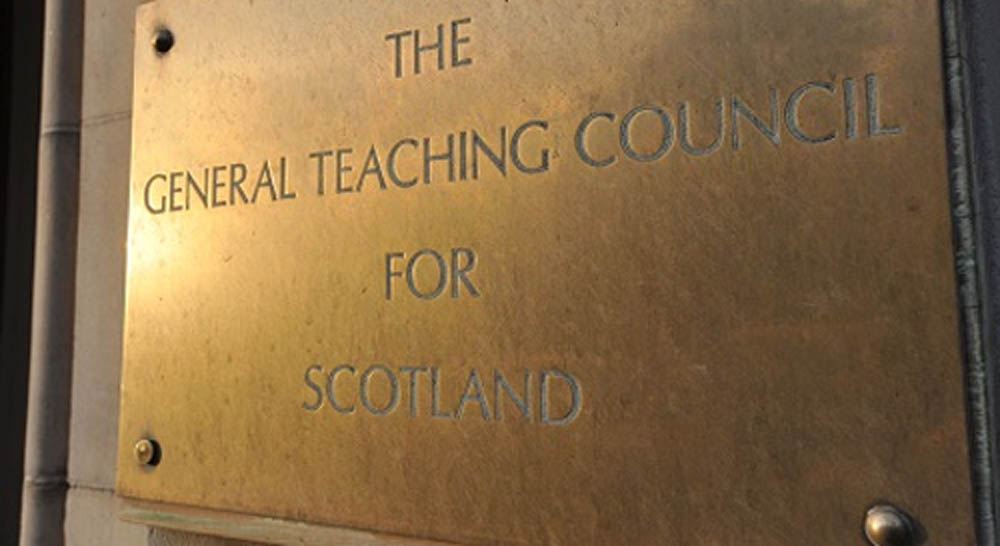A TEACHER at a £29,000 Scottish residential school has agreed to be struck off after having sex with pupils on the premises.
But Scotland’s teaching watchdog has been criticised over the case after it agreed to keep the name of the teacher and school secret.
The teacher, a female known only as Respondent A, repeatedly had sex with a number of male pupils aged 17 or 18 during 2014 and 2015 at Merchiston Castle School in Edinburgh.
Respondent A also admitted to constantly sending sexually explicit videos to a male pupil in February 2015.
On Tuesday, the General Teaching Council for Scotland (GTCS) accepted a removal with consent order from the teacher admitting to the charges and agreeing to be struck off.
But the GTCS had approved an application from the teacher for the entire hearing to be held in private on the grounds of protecting vulnerable pupils.
On Wednesday, when the school was revealed, the headteacher issued an apology for the “shocking way” the teacher acted.
The charges in full, signed by Respondent A, stated that “During the 2014/15 school session, whilst employed as a teacher….in the knowledge that pupils were not permitted to leave The School premises, you did repeatedly permit the pupils to leave The School premises through your residence at The School and in so doing you did breach The School’s residency policy.”
A second charges stated that: “During the 2014/15 school session, whilst employed as a teacher at The School, you did on school premises, repeatedly engage in sexual intercourse with male pupils who were then aged between 17 and 18 years of age.”
“During February 2015, whilst employed as a teacher at The School you did repeatedly send by electronic means, videos of a sexually explicit nature to a male pupil.”
They added that during 2014 and 2015 the teacher also communicated with pupils over a Facebook group created by pupils called “Organised Bullying”.
A representative of the media was allowed to address the panel, arguing that the case should be held in public.
Under Section 43 of The Sexual Offences (Scotland) Act 2009 there is specific rule put in place to protect young people under the age of 18 from anyone in a ‘position of trust’, such as a teacher or medical practitioner.
A spokesman for the GTCS said: “Our Fitness to Teach panels consider a range of evidence including the risk of vulnerable witnesses being identified when taking the decision to hold any hearing in private.
“The panel will publish an outcome following the conclusion of this hearing which will explain more about its decision.
“The vast majority of Fitness to Teach hearings are held in public and open to media and other interested parties.
“All decisions are published openly on the GTCS website.’
Teaching unions also backed giving Respondent A anonymity.
A spokesman for the Scottish Secondary Teachers’ Association (SSTA) said: “We would wish all teachers who are at the GTCS hearings to remain anonymous until the results are released.
“In this particular case we agree with GTCS and it may be that by identifying one individual you identify the pupils or young people involved.”
A spokeswoman for the Educational Institute of Scotland (EIS) said: “While the EIS does not comment on the specifics of any GTCS case, there are a wide range of circumstances as to why the GTCS might decide both a teacher and school should remain anonymous – including the need to maintain protection of pupil identities.”
It was reported in October 2015 that a female teacher at the all boys boarding school had been accused of having inappropriate relationships with a number of pupils.
Police Scotland confirmed at the time that it was investigating.
The school, for seven to 18-year-olds, is one of the most expensive schools in the country.
The school has already seen two men charged over historical abuse allegations.
Two men aged 62 and 69, believed to be former members of staff, were also charged as a result of the earlier investigation.
In 2016 another teacher, Gordon Cruden, who also taught at the exclusive school, was found guilty of exposing himself to teenage boys but escaped punishment despite being found guilty.
At the time, he was given an absolute discharge by the sheriff and went on to work as a French teacher at Bloxham school in North Oxfordshire.
In 2013, long-time teacher James Rainy Brown committed suicide after being told police were investigating claims of his “inappropriate conduct” towards pupils at the private school.
The 75-year-old, who had worked at Merchiston Castle for more than half a century, was found at his Colinton home shortly after he learned of the probe.
In early 2015, the Care Inspectorate “identified concerns about the quality of child protection practice” and urged the school to do more to safeguard pupils.
Andrew Hunter, Headmaster of Merchiston Castle School, said: “The safety and protection of our pupils is always our absolute priority.
“We sincerely regret that, despite the school relentlessly pursuing the highest child safety standards, this individual ignored all of our policies and procedures and acted in this shocking way, breaching the trust of the school, our pupils and our parents.
“We immediately informed Police Scotland when suspicions were raised and undertook an intensive review, further tightening our child protection systems to ensure they were as rigorous as they possibly could be.
“We also passed the information to the General Teaching Council for Scotland so that they could take steps to investigate this individual’s fitness to teach and to protect pupils from her in the future.
“Recent inspections from Education Scotland and the Care Inspectorate found Merchiston’s child protection safeguards to be robust and effective and the Board of Governors also appointed external, independent experts to conduct a detailed review, which confirmed these findings.
“However, there is no room for complacency and we are constantly monitoring and improving our approach to these vital issues.”


